#onesimus
Video
😕🙉
#video#tiktok#tiktoks#history#wtf#onesimus#benjamin franklin#ignaz semmelweis#carl flügge#al gore#amber ruffin#theamberruffinshow
82 notes
·
View notes
Text
Paul’s Letter to Philemon - an exhortation to choose love
Paul writes a letter to Philemon to urge him to take Onesimus as his slave, to continue the ministry...for Paul is old and would love to have his worked passed on as much.
I see the letter as also a relevant letter to us, to see the good in others. For Onesimus is a prisoner yet that doesn’t make him less of a man. As children of God, “your partnership in the Faith may become effective in recognising every good there is in us that leads to Christ.” (Phil 1:6). Man is all called to holiness and to Christ. This letter of Paul urges us to see the good in others no matter who or what they are. Paul also takes into account the nature of free will; where we are free to choose and decide. “I did not want to do anything without your consent, so that the good you do might not be forced but voluntary.” (Phil 1:14)
Paul always wants the good in us to prevail. Truly, to enhance and exercise the gifts of our spirit. May we always have the initiative to do what is good and to see the good in others as what Christ would do to us sinners. May we live truly like how Christ did; loving us unconditionally and giving us more than what we ought to deserve.
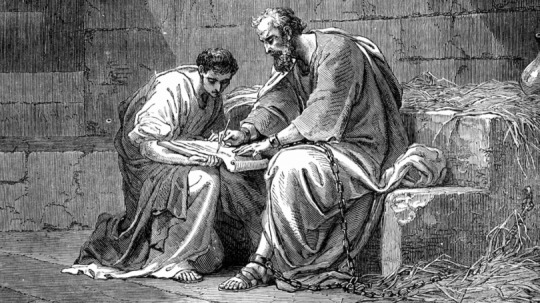
(9/2/23)
8 notes
·
View notes
Text
[The slave] answered both Yes and No [when asked if he had had smallpox] and then told me that he had undergone an Operation which had given him something of the smalpox & would forever praeserve him from it; adding that it was often used among the Guaramantese & whoever had the courage to use it, was forever free from the fear of contagion.
Onesimus was speaking of inoculation against smallpox, a successful preventive measure that was widely practiced throughout Africa. Smallpox inoculation took various forms, but the common denominator was that a small amount of the pus in scabs or other infected matter from someone with smallpox was deliberately introduced into the broken skin of a well person. This “variolation,” as Mather called it, evoked mild symptoms, followed by permanent, complete immunity, the Holy Grail of smallpox prevention for Western doctors and scientists. Onesimus showed Cotton Mather the technique used by those in his native country.
When a smallpox epidemic revisited Boston in the summer of 1721, Cotton Mather and his clerical brethren called for a mass inoculation of the people of Boston. However, the city’s physicians, led by William Douglass, resented being told by a gaggle of ministers that Africans had devised the panacea they had long sought. Zabdiel Boylston was the only physician to embrace inoculation, but not before testing it on 2 black slaves, then 248 more—as well as his own six-year-old son. Boylston then proved they had achieved immunity by exposing them to cases of smallpox.
The physicians’ resistance turned uglier—and violent. The popular press played no small role, serving as the battleground while doctors condemned variolation because it was the laughable, “unchristian” product of occult African practices. The fact that inoculation worked seemed not to play into physicians’ assessments, and their bitter attacks were not confined to the intellectual sphere: A lighted grenade was thrown into Mather’s house, along with a note declaring, “Cotton Mather, You Dog, Dam You: I’ll Inoculate you with this, with a pox to you.” This prompted him to complain, “I do not know why it is more unlawful to learn of Africans, how to help against the Poison of the Small-Pox, than it is to learn of our Indians, how to help against the Poison of a Rattle-Snake.”
In the end, the obvious reduction of death rates—from 14 percent to less than 2 percent—convinced doctors that inoculation was the city’s savior. Approximately 8,000 Bostonians became ill and 844 died; but while one in every nine untreated patients succumbed, only one in every forty-eight inoculated people was stricken.
Mather made a scientific report to the Royal Society in 1722. By 1750, inoculation was standard in America and Europe, as it long had been in Africa. Historians hailed it as “the earliest important experiment in America in preventive medicine,” but Onesimus came to share the fate of nearly every slave who contributed to medical research: facelessness.
#onesimus#smallpox#18th century#medecine#healthcare#racism#health#book : medical apartheid#Cotton Mather#William Douglass#Zabdiel Boylston#slavery#abuse#usa
1 note
·
View note
Text
Forgiveness is always in accordance with Torah
Forgiveness is always in accordance with Torah
The consistency of God’s instruction is revealed when all of the information is reviewed carefully.
One of the challenges that are brought up in regard to the veracity of the teachings of Paul is the tiny epistle written to Philemon. In this letter, Paul is urging his friend Philemon to receive back his former slave, Onesimus, who has since become a believer in Messiah Yeshua. The contention…
View On WordPress
#bible#commandment#core of the bible#deuteronomy#forgive#Forgiveness#jesus#messiah#onesimus#Paul#philemon#slave#slavery#torah#yeshua
5 notes
·
View notes
Text

Onesimus - Bygones https://www.curteboamusica.info/2024/02/onesimus-bygones.html?utm_source=dlvr.it&utm_medium=tumblr
0 notes
Text
Philemon Had a Problem. It's the Same One YOU Have!
As we make our way through the last of Paul’s epistles, we encounter the curious case of Paul’s letter on behalf of Onesimus, a slave who ran away from his master, a man named Philemon. According to Roman law and cultural dictates, Philemon had the right to demand severe punishment for Onesimus. Both the law and society were on his side. He could ask for the ultimate penalty upon his escaped…
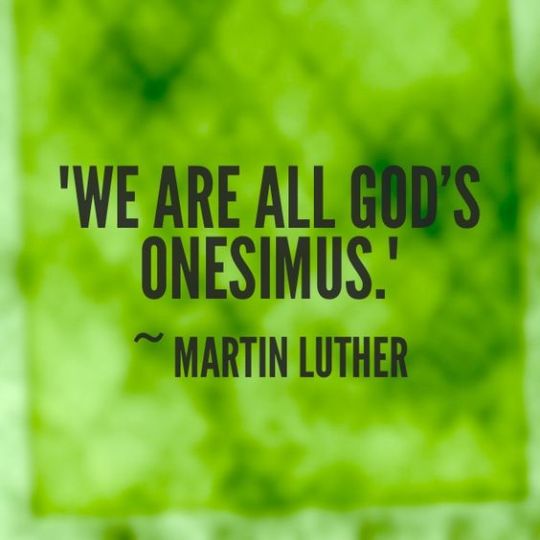
View On WordPress
0 notes
Text
Changing the System (Philemon 1-25)
In the household of faith, all persons are sisters and brothers and useful servants of one another and of the Lord.
A mosaic of Philemon’s slave, Onesimus
Paul, a prisoner of Christ Jesus, and Timothy our brother,
To Philemon our dear friend and fellow worker—also to Apphia our sister and Archippus our fellow soldier—and to the church that meets in your home:
Grace and peace to you from God our Father and the Lord Jesus Christ.
I always thank my God as I remember you in my prayers, because I hear about…
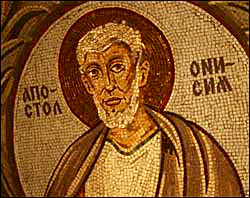
View On WordPress
#apostle paul#christian community#christian discipleship#christian faith#christian fellowship#christian hospitality#christian life#christian service#christianity#equality#freedom#inequality#onesimus#philemon#power inequities#slave#slavery#social change#social issues#social justice#social relationships#systemic change
0 notes
Text
A Prisoner of Christ
A Prisoner of Christ
7 Tychicus will tell you all about my activities. He is a beloved brother and faithful minister and fellow servant in the Lord. 8 I have sent him to you for this very purpose, that you may know how we are and that he may encourage your hearts, 9 and with him Onesimus, our faithful and beloved brother, who is one of you. They will tell you of everything that has taken place here.
10 Aristarchus my…

View On WordPress
#Archippus#Aristarchus#Colossians#Colossians 4#Demas#disciples#Epaphras#Jesus#Jesus (Justus)#Luke#New Testament#Onesimus#Paul#prisoner of Christ#servant#suffering#the Gospel#Tychicus
0 notes
Text
SAINT OF THE DAY (February 16)

St. Onesimus was a slave to Philemon, an influential man who had been converted by St. Paul.
Onesimus offended Philemon and fled in order to escape any sort of retribution.
He then met St. Paul while Paul was in a Roman prison. Shortly after, Onesimus was baptized.
Paul then sent a letter to Philemon asking for Onesimus' freedom, so Onesimus could become one of his own assistants.
This letter is the Epistle to Philemon and entreats Philemon to accept Onesimus “no longer as a slave, but more than a slave, a brother, beloved especially to me.”
Philemon pardoned Onesimus and he returned to faithfully serve St. Paul.
We know that St. Paul made him, with Tychicus, the bearer of his Epistle to the Colossians (Col. 4:7-9).
Later, as St. Jerome and other fathers testify, he became an ardent preacher of the Gospel and succeeded St. Timothy as bishop of Ephesus.
He was cruelly tortured in Rome for 18 days by a governor who was infuriated by his preaching on the merit of celibacy.
Onesimus' legs and thighs were broken with bludgeons before he was stoned to death.
His martyrdom occurred under Domitian in the year 90.
2 notes
·
View notes
Text
Today I found out that "splanchnic" is a word (synonym with visceral in the internal organs sense of the word)
#a sock speaks#grad school tag#I knew the Greek word it comes from but it was still kind of a surprise#Paul uses it in Philemon to talk about how important Onesimus is to him#who is out here using splanchnic?#actually I need to start dropping this into sentences#this word would fit in a locked tomb fic. it sounds like a word Gideon would use.#this revision isn't revising :/
2 notes
·
View notes
Photo

Thursday June 23rd 2022 🔯 Read Philemon 🔯 Appeal for Onesimus 🔯 Amen. 🔯💟💟💟🙏 . . . . . Link to full text in bio . . . . . #joelosteen #joelosteenpodcast #tdjakes #tdjakesministries #bible #bibleverse #biblejournaling #biblestudy #gospel #gospelmusic #jesus #church #baptistchurch #lakewoodchurch #morningprayer #dailybible #dailybibleverse #dailybibleverses #bibleverse #bibleverses #biblequotes #bibleverseoftheday #christianquotes #bibleversedaily #dailyscripture #dailybible #dailyverse #dailyverses #biblescriptures #biblegram
0 notes
Text
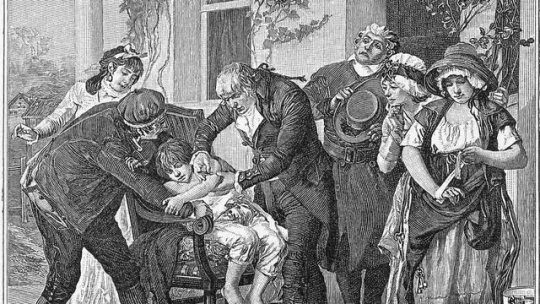
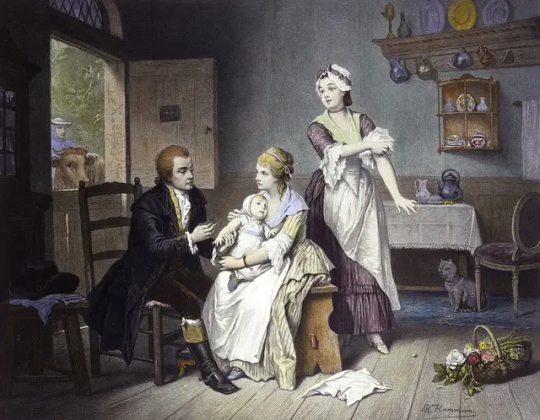

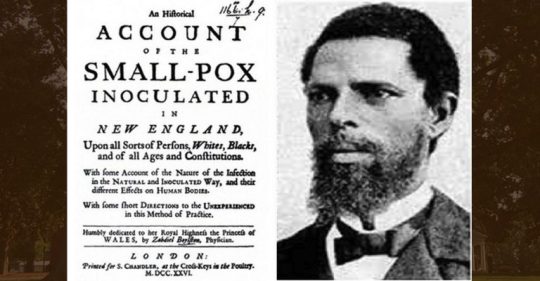
Onesimus (late 1600s–1700s) was an African man who was instrumental in the mitigation of the impact of a smallpox outbreak in Boston, Massachusetts. His birth name is unknown. He was enslaved and, in 1706, was given to the New England Puritan minister Cotton Mather, who renamed him. Onesimus introduced Mather to the principle and procedure of the variolation method of inoculation to prevent the disease, which laid the foundation for the development of vaccines. After a smallpox outbreak began in Boston in 1721, Mather used this knowledge to advocate for inoculation in the population. This practice eventually spread to other colonies. In a 2016 Boston magazine survey, Onesimus was declared one of the "Best Bostonians of All Time"

Onesimus's name at birth and place of birth are unknown with certainty. He was first documented as living in the colonies in 1706, having been brought to North America as an enslaved person. In December of that year, he was given as a gift by a church congregation to Cotton Mather, their Puritan minister of North Church, as well as a prominent figure in the Salem Witch Trials. Mather renamed him after a first-century AD enslaved person mentioned in the Bible.The name, "Onesimus" means "useful, helpful, or profitable".
Mather referred to the ethnicity of Onesimus as "Guaramantee", which may refer to the Coromantee (also known as Akan people of modern Ghana).
Mather saw Onesimus as highly intelligent and educated him in reading and writing with the Mather family (for context, according to biographer Kathryn Koo, at that time, literacy was primarily associated with religious instruction, and writing as means of note-taking and conducting business)

In 1716 or shortly before, Onesimus had described to Mather the process of inoculation that had been performed on him and others in his society in Africa (as Mather reported in a letter): "People take Juice of Small-Pox; and Cut the Skin, and put in a drop." In the book, African Medical Knowledge, the Plain Style, and Satire in the 1721 Boston Inoculation Controversy, Kelly Wisecup wrote that Onesimus is believed to have been inoculated at some point before being sold into slavery or during the slave trade, as he most likely traveled from the West Indies to Boston.

The variolation method of inoculation was long practiced in Africa among African people.
The practice was widespread among enslaved colonial people from many regions of Africa and, throughout the slave trade in the Americas, slave communities continued the practice of inoculation despite regional origin.
Mather followed Onesimus's medicinal advice because, as Margot Minardi writes, "inferiority had not yet been indelibly written onto the bodies of Africans."

#african#afrakan#kemetic dreams#africans#brownskin#brown skin#afrakans#african culture#afrakan spirituality#smallpox#vodun#obeah#margot minardi#ghana#akan#Salem Witch Trials#smallpox outbreak in Boston#Massachusetts.#Coromantee#puritans
94 notes
·
View notes
Text

The idea for vaccination was introduced from the African tradition of inoculation by an enslaved person named Onesimus.
In the midst of the coronavirus pandemic, one of the hottest topics of discussion is when, and how, we can quickly get a vaccine developed.
But we wouldn't even be discussing that opportunity if not for the introduction of African inoculation techniques by a man named Onesimus.
In the early 16th century, Onesimus was sent from Libya to Boston to the Puritan church minister Cotton Mather. During his time as a slave to Mather, Onesimus told him about a centuries-old technique of inoculation used in Africa. Onesimus described how Africans would extract materials from an infected person and scratch it into the skin of a non-infected person to create a system of immunity.
Highly intrigued, Mather convinced a doctor in Boston to experiment with the technique when a smallpox epidemic hit the area in 1721.
Though the technique was considered highly dangerous at the time, Onesimus opened up the path for experimentation with vaccine development, and his information was eventually used to inoculate soldiers during the Revolutionary War.
To read more: https://www.microbigals.com/amp/the-history-of-onesimus-the-black-slave-who-helped-stop-smallpox
#black history#black and proud#black pioneers#african america history#african american history#black history month#black history matters
4 notes
·
View notes
Text
listen i know this is irrelevant to everything i’ve been posting today but cotton mather is such a funny guy to read about. on the one hand he’s Mr. Witch Hunt but on the other hand he was also a huge advocate for inoculation (forerunner to vaccination), which, on a third hand, he learned about from onesimus, an enslaved african man whom mather owned. and also his name was cotton mather. truly the most 1600s man ever to exist
9 notes
·
View notes
Text
Saints&Reading: Wednesday, January 17, 2024
january 4_ januaryry 14
The hymns compare the Feast of the Nativity with the coming Feast. “There shepherds saw the Child and were amazed; here the voice of the Father proclaims the only-begotten Son.”
SYNAXIS OF THE SEVENTY APOSTLES

The Synaxis of the Seventy Apostles was established by the Orthodox Church to indicate the equal honor of each of the Seventy. They were sent two by two by the Lord Jesus Christ to go before Him into the cities He would visit (Luke 10:1).
Besides the celebration of the Synaxis of the Holy Disciples, the Church celebrates the memory of each of them during the course of the year:
Saint James the Brother of the Lord (October 23); Mark the Evangelist (April 25); Luke the Evangelist (October 18); Cleopas (October 30), brother of Saint Joseph the Betrothed, and Simeon his son (April 27); Barnabas (June 11); Joses, or Joseph, named Barsabas or Justus (October 30); Thaddeus (August 21); Ananias (October 1); Protomartyr Stephen the Archdeacon (December 27); Philip the Deacon (October 11); Prochorus the Deacon (July 28); Nicanor the Deacon (July 28 and December 28); Timon the Deacon (July 28 and December 30); Parmenas the Deacon (July 28); Timothy (January 22); Titus (August 25); Philemon (November 22 and February 19); Onesimus (February 15); Epaphras and Archippus (November 22 and February 19); Silas, Silvanus, Crescens or Criscus (July 30); Crispus and Epaenetos (July 30); Andronicus (May 17 and July 30); Stachys, Amplias, Urban, Narcissus, Apelles (October 31); Aristobulus (October 31 and March 16); Herodion or Rodion (April 8 and November 10); Agabus, Rufus, Asyncritus, Phlegon (April 8 ); Hermas (November 5, November 30 and May 31); Patrobas (November 5); Hermes (April 8); Linus, Gaius, Philologus (November 5); Lucius (September 10); Jason (April 28); Sosipater (April 28 and November 10); Olympas or Olympanus (November 10 ); Tertius (October 30 and November 10 ); Erastos (November 30), Quartus (November 10 ); Euodius (September 7); Onesiphorus (September 7 and December 8); Clement (November 25); Sosthenes (December 8); Apollos (March 30 and December 8); Tychicus, Epaphroditus (December 8); Carpus (May 26); Quadratus (September 21); Mark (September 27), called John, Zeno (September 27); Aristarchus (April 15 and September 27); Pudens and Trophimus (April 15); Mark nephew of Barnabas, Artemas (October 30); Aquila (July 14); Fortunatus (June 15) and Achaicus (January 4).
With the Descent of the Holy Spirit the Seventy Apostles preached in various lands. Some accompanied the Twelve Apostles, like the holy Evangelists Mark and Luke, or Saint Paul’s companion Timothy, or Prochorus, the disciple of the holy Evangelist John the Theologian, and others. Many of them were thrown into prison for Christ, and many received the crown of martyrdom.
There are two more Apostles of the Seventy: Saint Cephas, to whom the Lord appeared after the Resurrection (1 Cor. 15:5-6), and Simeon, called Niger (Acts 13:1). They also were glorified by apostolic preaching.
There are discrepancies and errors in some lists of the Seventy Apostles. In a list attributed to Saint Dorotheus of Tyre (June 5) some names are repeated (Rodion, or Herodion, Apollos, Tychicus, Aristarchus), while others are omitted (Timothy, Titus, Epaphras, Archippus, Aquila, Olympas). Saint Demetrius of Rostov consulted the Holy Scripture, the traditions passed down by the Fathers, and the accounts of trustworthy historians when he attempted to correct the mistakes and uncertainties in the list in compiling his collection of Lives of the Saints.
The Church in particular venerates and praises the Seventy Apostles because they taught us to honor the Trinity One in Essence and Undivided.
In the ninth century Saint Joseph the Hymnographer composed the Canon for the Synaxis of the Seventy Apostles of Christ.
Source: Orthodox Church in America_OCA


1 PETER 4:1-11
1 Therefore, since Christ suffered for us in the flesh, arm yourselves also with the same mind, for he who has suffered in the flesh has ceased from sin, 2 that he no longer should live the rest of his time in the flesh for the lusts of men, but for the will of God. 3 For we have spent enough of our past lifetime in doing the will of the Gentiles-when we walked in lewdness, lusts, drunkenness, revelries, drinking parties, and abominable idolatries. 4 In regard to these, they think it strange that you do not run with them in the same flood of dissipation, speaking evil of you. 5 They will give an account to Him who is ready to judge the living and the dead. 6 For this reason the gospel was preached also to those who are dead, that they might be judged according to men in the flesh, but live according to God in the spirit. 7 But the end of all things is at hand; therefore be serious and watchful in your prayers. 8 And above all things have fervent love for one another, for "love will cover a multitude of sins." 9 Be hospitable to one another without grumbling. 10 As each one has received a gift, minister it to one another, as good stewards of the manifold grace of God. 11 If anyone speaks, let him speak as the oracles of God. If anyone ministers, let him do it as with the ability which God supplies, that in all things God may be glorified through Jesus Christ, to whom belong the glory and the dominion forever and ever. Amen.
MARK 12:28-37
28 Then one of the scribes came, and having heard them reasoning together, perceiving that He had answered them well, asked Him, "Which is the first commandment of all?" 29 Jesus answered him, "The first of all the commandments is: 'Hear, O Israel, the LORD our God, the LORD is one. 30 'And you shall love the LORD your God with all your heart, with all your soul, with all your mind, and with all your strength.' This is the first commandment. 31 And the second, like it, is this: 'You shall love your neighbor as yourself.' There is no other commandment greater than these. 32 So the scribe said to Him, "Well said, Teacher. You have spoken the truth, for there is one God, and there is no other but He. 33 And to love Him with all the heart, with all the understanding, with all the soul, and with all the strength, and to love one's neighbor as oneself, is more than all the whole burnt offerings and sacrifices. 34 Now when Jesus saw that he answered wisely, He said to him, "You are not far from the kingdom of God." But after that no one dared question Him. 35 Then Jesus answered and said, while He taught in the temple, "How is it that the scribes say that the Christ is the Son of David? 36 For David himself said by the Holy Spirit:'The LORD said to my Lord, Sit at My right hand, Till I make Your enemies Your footstool." ' 37 Therefore David himself calls Him 'Lord'; how is He then his Son? And the common people heard Him gladly.
#orthodoxy#orthodoxchristianity#easternorthodoxchurch#originofchristianity#spirituality#holyscriptures#gospel#bible#wisdom#saints
3 notes
·
View notes
Text
SAINT OF THE DAY (February 16)

St. Onesimus was a slave to Philemon, an influential man who had been converted by St. Paul.
Onesimus offended Philemon and fled in order to escape any sort of retribution. He then met St. Paul while Paul was in a Roman prison. Shortly after, Onesimus was baptized.
Paul then sent a letter to Philemon asking for Onesimus' freedom, so Onesimus could become one of his own assistants.
This letter is the Epistle to Philemon and entreats Philemon to accept Onesimus “no longer as a slave, but more than a slave, a brother, beloved especially to me.”
Philemon pardoned Onesimus and he returned to faithfully serve St. Paul.
We know that St. Paul made him, with Tychicus, the bearer of his Epistle to the Colossians. (Col. 4:7-9)
Later, as St. Jerome and other fathers testify, he became an ardent preacher of the Gospel and succeeded St. Timothy as bishop of Ephesus.
He was cruelly tortured in Rome for 18 days by a governor who was infuriated by his preaching on the merit of celibacy.
Onesimus' legs and thighs were broken with bludgeons before he was stoned to death.
His martyrdom occurred under Domitian in the year 90.
8 notes
·
View notes